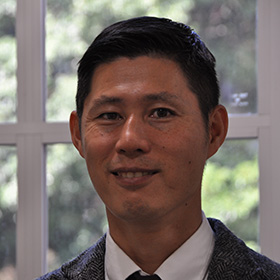This is the third TED-style talk in the Global Career Lecture Series. The lectures add more participants each time, and over 80 students attended this time. The lecturer was Teruhiro Ura, a staff member at the Japan International Cooperation Agency (JICA). As a member of the Japan Overseas Cooperation Volunteers (JOCV), he was sent to Tanna, Vanuatu for two years from 2007. He talked about his experiences there.
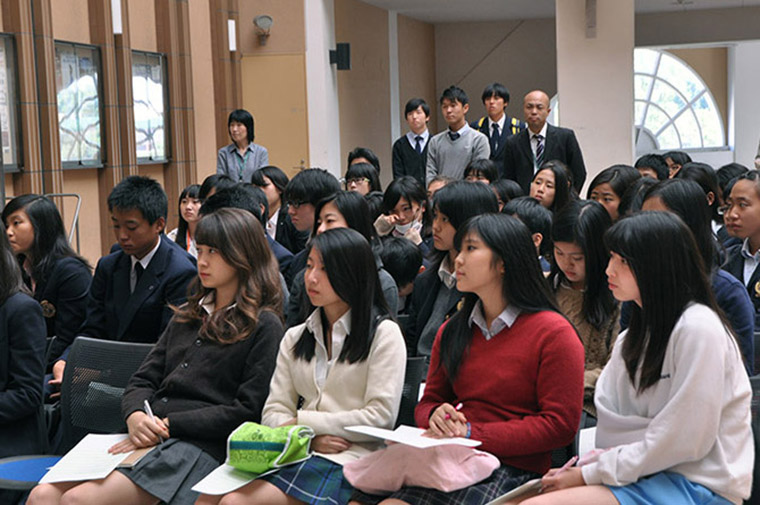
At the beginning he explained about JICA. “JICA has two focuses. We offer government-to-government support to developing countries as an international organization, and we also provide grass-roots support by dispatching staff from JOCV.” He talked about the real day to day work they do so the students could understand the real world value of the organization.
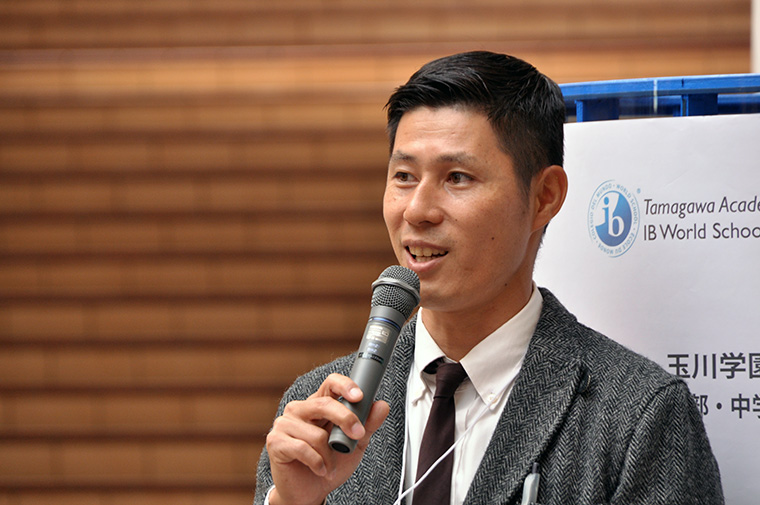
Mr. Ura had worked in Tanna as a member of the JOCV with the idea to “work close together with local people.” The purpose of their volunteering is to transfer technology. That means that the local people would be able to do things on their own after their supporters left. Therefore, he was dispatched as an instructor who could offer modern physical education teaching methods. At first, Mr. Ura expected that local teachers and he would teach children together.
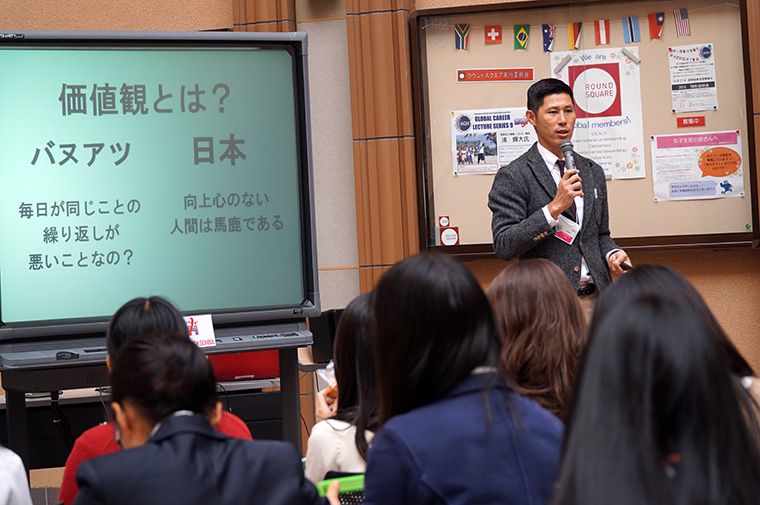
However, when he arrived there, he was confounded by the people’s unique outlook on life: “Being happy is doing the same thing throughout your life. That’s the best.” He became worried about the gap between his way of thinking and theirs because he also understand what they said.
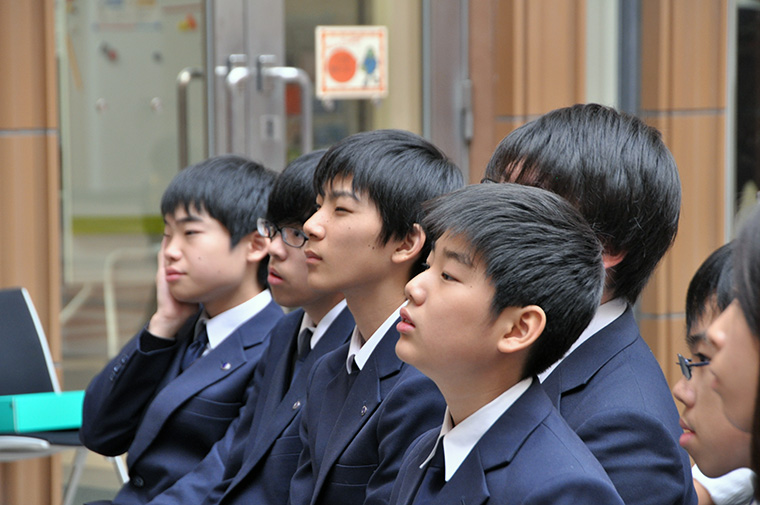
He talked about his struggle there, showing a video of the PE class. He said, “The style of PE that I wanted to teach was not necessary for children who walk to school over two hours. The local teachers said that they didn’t see the point of it and they told me to do it by myself. I was shocked. But the children seemed very pleased with the class I had prepared for them.”
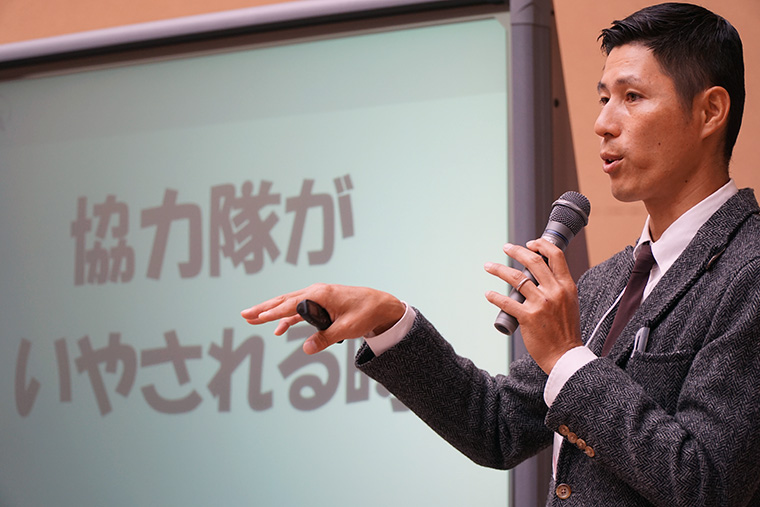
The most difficult thing in those days was that he couldn’t communicate with the local people because he didn’t know their language. As a result he became reclusive. However, it was the children who helped him. They came to look into his house every day on the way to the kindergarten next door. He found that he could easily communicate with the children and that communication doesn’t need any words. That helped him overcome those hard times.
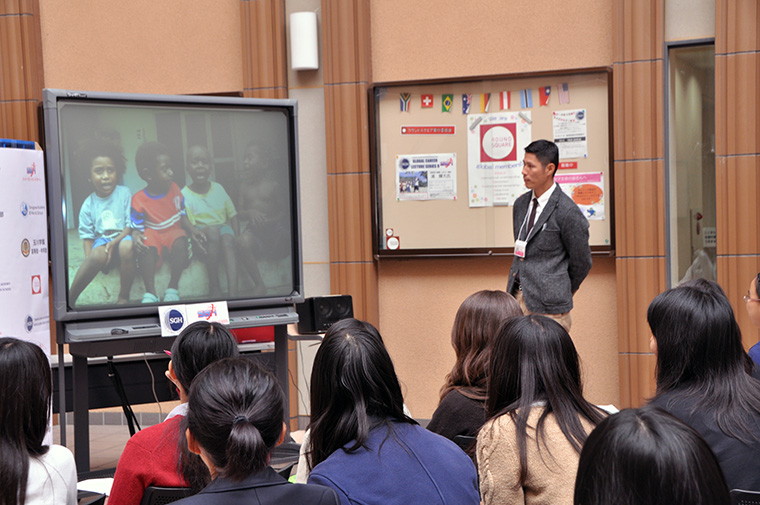
He showed a video of the children. Their innocence on the screen made everyone smile and laughs could be heard in the hall. The images let the students feel the warmth of the local people and they could sympathize with the situation.
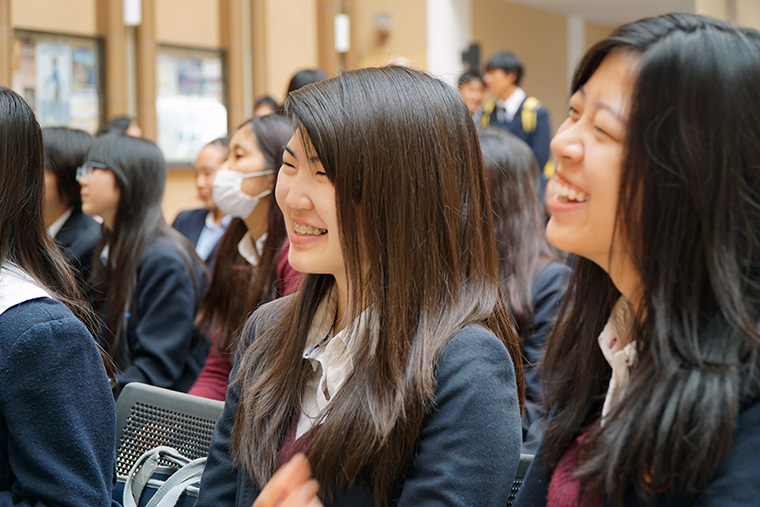
One year after he was dispatched to Vanuatu, he became frustrated with the teachers because he thought there was a lack of co-operation. However, he realized that he wouldn’t get anywhere by just being frustrated. He decided to think about the matter from the point of view of the “supported people.” Then, he began to realize that what he thought was good bothered them and it was intrusive. In the end, he decided to focus on the students rather than the teachers.
When he completed his stay, he thought that he should give some feedback to the local people. He felt negative about his time there and said “I couldn’t achieve anything.” However, they replied, “We didn’t expect you give us new skills. We just wanted a Japanese friend to show us a different way of life. You did a good job.” He was surprised at their appreciation, and realized that Vanuatu is a really happy country where the people are satisfied .
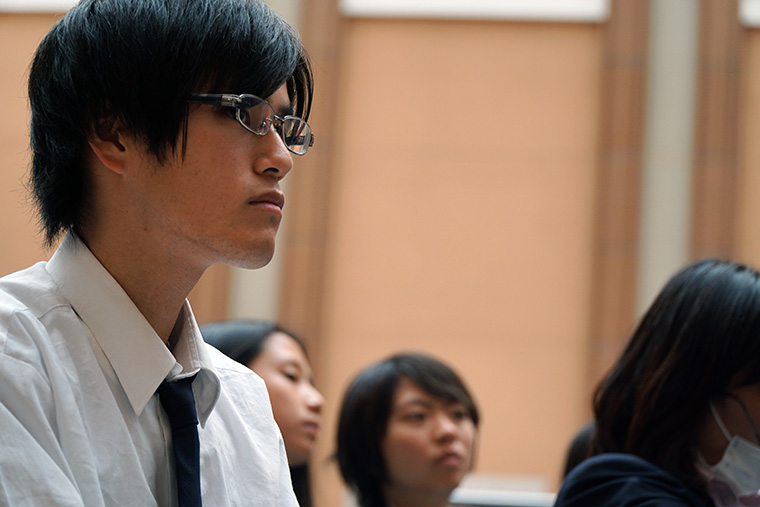
Finally, the students watched a video composed of pictures with narration of the memories of his two years. Each image was impressive, and the students got drawn in by the children’s faces and the people’s lifestyle.
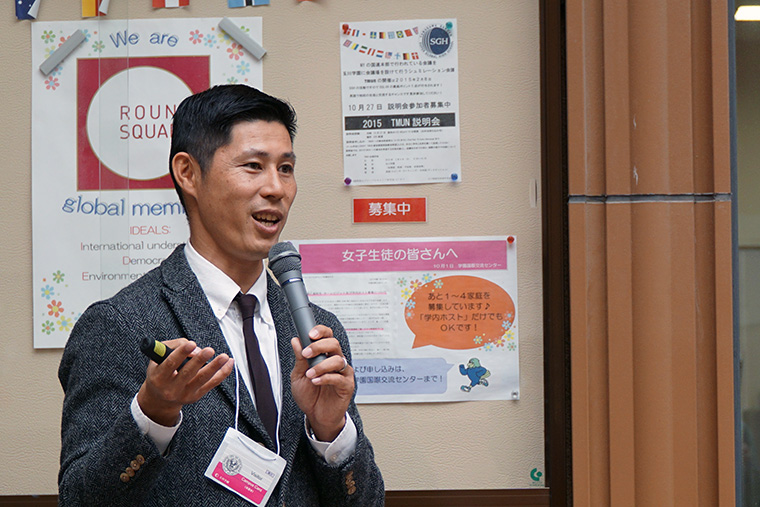
After the video, he concluded, “I had had an image that people in developing countries are in need and miserable. But they have their own cultures and lives. Vanuatu people live with nature, which has been sustainable for hundreds of years. And we should learn from them.”
How should we support developing countries? What is the true nature of support? The lecture showed many examples and honest reports which gave the students clues to help them think about those questions with a sense of reality.




